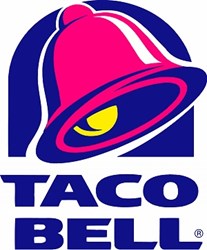Restaurant And Hospitality News – April 18, 2016

By Christine Kern, contributing writer

In news this week, restaurants face continuing challenge of sliding same-store sales in March; Taco Bell launches TacoBot using artificial intelligence; and a list of tech innovations hotels can employ to help boost customer service and satisfaction.
March Same-Store Sales Remain Challenging For Restaurants
Declines in same-store sales continued into March, according to data reported by TDn2K’s Black Box Intelligence through The Restaurant Industry Snapshot, representing erratic consumer behavior and trends that transcend just a few brands, the Nation’s Restaurant News reported. The data revealed a 0.7 percent drop in same-store sales, the second worst month since February 2014.
“In recent years, March has typically been strong for restaurant sales as weather becomes nicer at the beginning of spring, some pent-up demand from the winter months is probably acted upon, heating costs go down and spring breaks generate some additional spending,” said Victor Fernandez, executive director of insights and knowledge for TDn2K.
Same-store sales for first quarter of 2016 also represent the end of a streak of seven consecutive quarters of positive same-store sales, and represent a broader challenge facing the restaurant industry. “Although weather continued to be a factor in some regions of the country, the slowdown in restaurant sales appears to go beyond just that,” Fernandez said. “It also goes beyond just a few brands or regions having a tough time.”
“The consumer has pulled back recently,” said Joel Naroff, president of Naroff Economic Advisors and TDn2K economist. “The March retail sales report was weak, and restaurant demand dropped sharply. Over the past four months, consumer behavior has been varying wildly, and it is not clear why. The willingness to spend on most goods, especially eating out, seems to wane and then come back.
The data showed that 71 percent of brands tracked by the report saw negative traffic during the first quarter, and Fernandez asserted that as a result, “they became less prone to significant price increases or started using promotions more aggressively.”
Taco Bell Launches TacoBot Chat Bot Ordering System
Taco Bell and Slack have partnered to launch “TacoBot,” a chat bot ordering system that uses artificial intelligence and allows customers to order food on the instant-messaging service that many companies se for internal communications, according to Business Insider. The new service can answer questions, recommend items, and "be fully equipped with the sharp and witty personality you’d expect from Taco Bell,” Fortune reported.
And Taco Bell describes TacoBot in this way on its website: “TacoBot is a new friend and should be treated as such upon a quick install. Start asking it questions about our menu, see how it’s feeling or find out what its favorite movie is. From there connect your ta.co account, choose your pickup location and order up your favorite Taco Bell item. TacoBot is ready to serve!”
TacoBot is currently in beta testing mode with companies including Giphy, Fullscreen, and Foodbeast, and Taco Bell plans to expand the technology to other companies over the next few months. Lawrence Kim, director of digital innovation and on-demand for Taco Bell, said that the Mexican fast-food company wants “to make the brand more accessible wherever and whenever our fans want it.”
He added: "Taco Bell is about food tailor-made for social consumption with friends, and that’s why integrating with a social communications platform like Slack makes perfect sense. TacoBot is the next best thing to having your own Taco Bell butler… and who wouldn’t want that??"
CNBC reported that Taco Bell has already been ahead of the curve when it comes to tech trends and marketing stunts, and that this new venture indicates that Taco Bell execs are playing close attention to what’s coming out of Silicon Valley.
Cutting-Edge Hotel Technologies To Improve Guest Experiences
U.S. News and World Reports recently highlighted 6 cutting-edge technologies that improve hotel guest experiences. These “innovative bells and whistles” serve to elevate customer service and improve satisfaction rates. The list includes smartphone tools, robots, keyless entry systems, virtual reality, tech-savvy rooms, and new mobile apps. Alex Shashou, co-founder and president of ALICE, a mobile-friendly guest experience management platform for the hospitality industry, told U.S. News that "We are finding innovative and tech-enhanced ways to deliver quality customer service that may, in fact, be more effective than relying on one person." The most successful tech innovations serve to put more control into guests’ hands.
Now, many hotels are powering features from check-in to room service to in-room controls via a guest’s smartphone. Keyless entry is also gaining in popularity, allowing guests to opt in and use their smartphones to access their rooms. And tech-savvy rooms allow guests to connect their gadgets to in-room platforms that allow them to stream entertainment to the hotel television or access hotel information.
A growing number of hotels are also now employing robots to perform many basic services, including room service delivery. "Guests love that their deliveries come in under half the time (typically in five minutes), they don't have to tip the robot and [they] avoid awkward human interactions when they're getting ready for bed," says Steve Cousins, CEO of Savioke, the company that manufactures robots currently in use at select Hilton, Residence Inn, Holiday Inn Express, Crowne Plaza and Aloft properties.
And virtual reality allows potential guests to view the property before booking a reservation, with newer technology taking the traditional 360-degree panoramic views even further. "Conventional virtual tours are simply 360-degree panorama photographs, slideshows or videos. They do not allow viewers to move freely through a space, and do not replicate the feeling of actually being in the space," says Bill Brown, CEO of Matterport. "Matterport Spaces give virtual visitors a truly immersive experience of a place, because they can explore it as if they were there. They can go anywhere in the space in whatever order they want," he explains.
